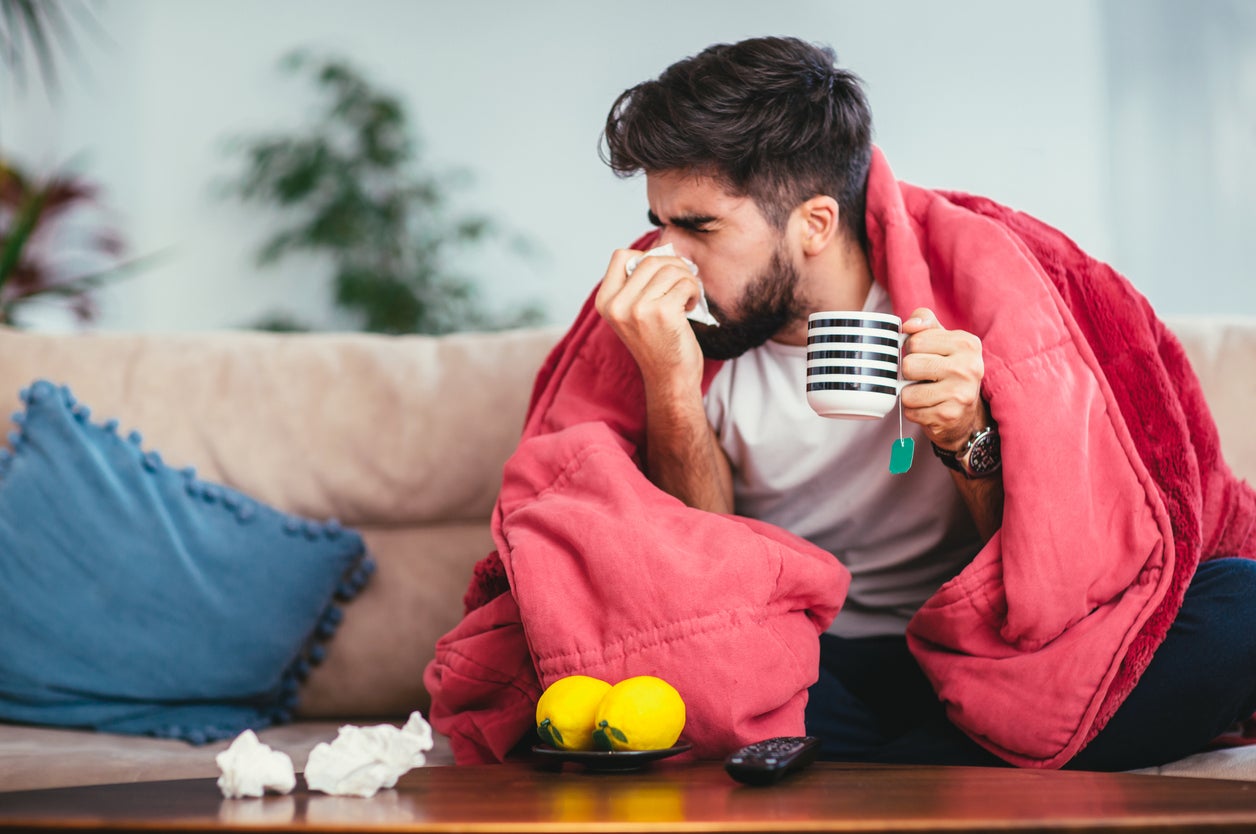Lack of virus exposure due to Covid may be driving ‘never-ending’ colds, experts warn
‘There’s been what seems like a bounce-back with frequency of infection with some respiratory viruses,’ says one expert
Your support helps us to tell the story
From reproductive rights to climate change to Big Tech, The Independent is on the ground when the story is developing. Whether it's investigating the financials of Elon Musk's pro-Trump PAC or producing our latest documentary, 'The A Word', which shines a light on the American women fighting for reproductive rights, we know how important it is to parse out the facts from the messaging.
At such a critical moment in US history, we need reporters on the ground. Your donation allows us to keep sending journalists to speak to both sides of the story.
The Independent is trusted by Americans across the entire political spectrum. And unlike many other quality news outlets, we choose not to lock Americans out of our reporting and analysis with paywalls. We believe quality journalism should be available to everyone, paid for by those who can afford it.
Your support makes all the difference.A lack of exposure to common viruses due to the Covid pandemic and people socialising indoors more during a wet start to the winter could be behind “never-ending” colds, experts have said.
Winter is the most likely season to catch a cold but health professionals have received anecdotal reports of illnesses lasting for longer than usual.
The rise in Covid cases and children returning to school following the Christmas holidays, allowing viruses to spread more easily, could be contributing to the phenomenon.
Jeremy Brown, a professor of respiratory infection at University College London (UCL), says there’s no clear data on whether any long-lasting viruses are currently circulating, as very little information is collected about the duration of infectious symptoms.
He noted that some people’s symptoms could be caused by Covid, which is “pretty indistinguishable from other respiratory viruses. It can make people feel pretty rotten – more so than standard cold viruses, but perhaps no more so than flu”.
The common symptoms of Covid haven’t changed drastically – fever, sore throat, runny nose, cough and sometimes gastrointestinal symptoms like diarrhoea are all typical, and prolonged symptoms range from dizziness and breathlessness to smell and taste disturbance.

Professor Brown says it is possible that viral infections are worse or more prolonged after the pandemic, however: “There’s been what seems like a bounce-back with frequency of infection with some respiratory viruses, although it’s always hard to be sure, as their incidence varies year to year anyway.
“This is not Covid impairing immunity, but lack of exposure to respiratory viruses weakening adaptive immunity to the viruses, so they can more readily infect when they’re circulating.”
Similarly, GP Dr Alisha Esmail says: “One theory about lingering cold symptoms is the ‘post-covid effect’, in that we had less exposure to the classical winter viruses due to quarantining and isolating, and so we’re catching up now on rebuilding our immune responses.
“Remember, viruses mutate and immune responses fade over time. Our individual immunity also has a huge number of factors – some within and some beyond our control.”
One expert said the weather and Christmas holidays could have played a part in people getting ill.
“The wet weather has kept us indoors and the damp has helped viruses survive better,” Ron Eccles, an emeritus biosciences professor at Cardiff University, and the former director of its Common Cold Centre, said.
“There are complaints about never-ending colds, and this may be due to multiple infections, or us being more rundown and stressed at this time of year after festive excess.”
Some people are also reporting having a long-lasting cough, dubbed the “100-day cough”. This is thought to actually be whooping cough in some cases.
Professor Brown explains: “Hundred-day cough is classic whooping cough – it’s exactly as it says, a dry cough that goes on for three months, but not really with sore throat, runny nose etc, just a cough.”

Dr Esmail explains that the most common cold viruses currently circulating are coronavirus, rhinovirus, respiratory syncytial virus (RSV, common in children), and parainfluenza, but says: “As far as we know, there are no new or particularly virulent viruses at play this winter, but all have different subtypes and can easily mutate, hence the possibility of catching them multiple times and in different ways.”
She says a typical cold usually lasts about seven to 10 days, and severity of symptoms can depend on the virus, as well as the affected person’s individual immune response. But if symptoms persist beyond three weeks, worsen suddenly, or you have a high fever or breathing trouble, a GP visit is a smart move.
“Resting, keeping well-hydrated and using over-the-counter treatments could shorten its stay, but if you’re still sniffling after three weeks, it’s time to take some action,” she advises.
Also, if symptoms really do linger, Esmail says there’s a chance it might be connected to seasonal allergies, sinus infections, underlying wheeze (like in asthma) or even “bacterial gate-crashers” – ie bacteria that have jumped on board, in which case, antibiotics may be needed (but these won’t help if it’s a virus).
Dr Esmail, who works at London Gynaecology, says lack of sleep, poor nutrition and high-stress levels can also prolong illness and weaken the immune system, and stresses that if symptoms persist for a long time, it’s worth visiting your GP.

Join our commenting forum
Join thought-provoking conversations, follow other Independent readers and see their replies
Comments